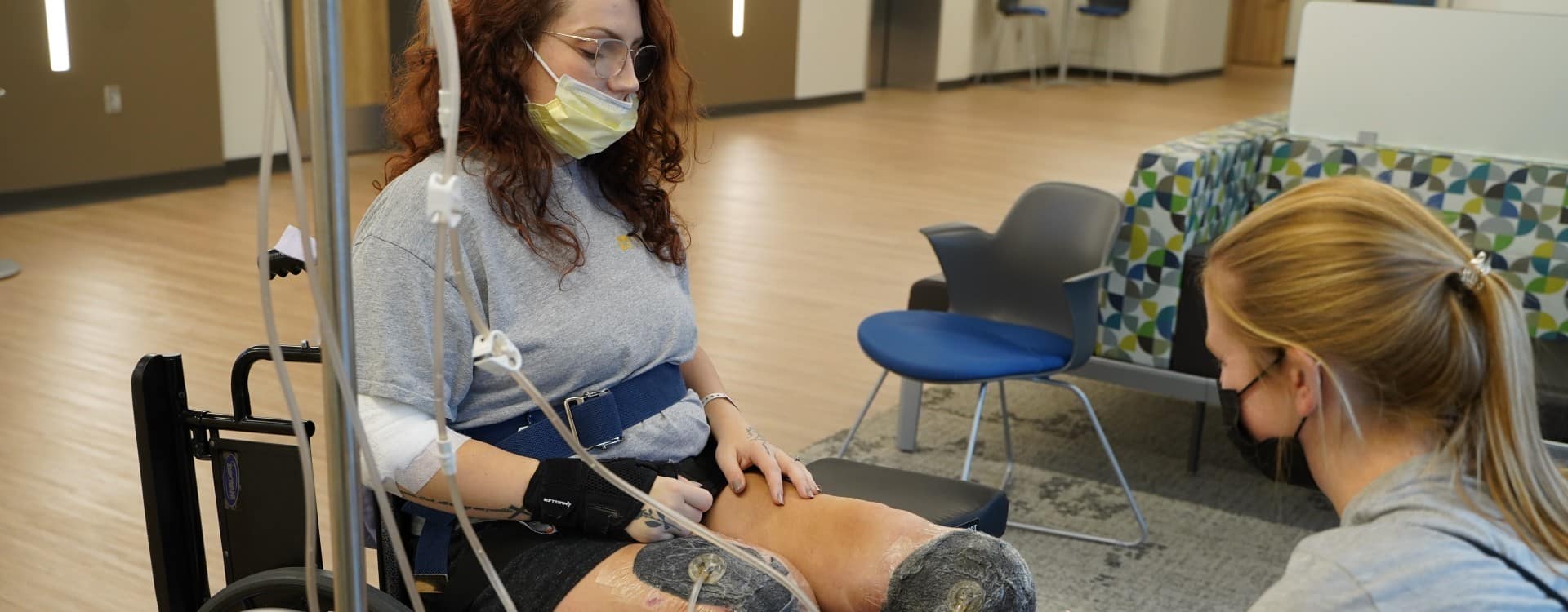Losing a limb is a life-changing event. The medical rehabilitation necessary after such an event, whether due to a serious illness or accidental trauma, can be a long journey. That’s why having the support of a dedicated team of rehabilitation experts is vital. At Madonna, our physiatrists, physical and occupational therapists, psychologists, rehabilitation nurses, and wound care specialists work together to create individualized care plans for patients who have experienced limb loss. This team of health care professionals combined with the latest research in Madonna’s state-of-the-art mobility lab and advanced technology gives our patients the foundation to achieve their fullest potential.
One such patient, Amelia Boettcher of Spencer, Nebraska, sustained severe injuries in a car accident and both of her legs had to be amputated. After her surgery at MercyOne in Sioux City, Iowa, Amelia came to Madonna’s specialized amputation program to navigate her new normal. The 28-year-old wife and mother of two found comfort and strength from the support of her family and her Madonna care team.
“I don’t know what I’d do if I didn’t have my family members here,” she said. “And one nurse named Carah went out of her way. My wound care changes used to be pretty painful, but she just made it easier so it didn’t hurt at all, which is crazy. She’s a really nice girl.”
For her part, Carah Criner, RN, believed Amelia’s inner strength propelled her forward on her rehabilitation journey.
“I was there with her for the first wound change, and we did it slowly and as a team,” Criner said. She wanted to be as independent as her body would allow. Toward the end of her stay, she was better at her wound care than I was! She is one of the strongest people I know.”
During her recovery, Amelia also met daily with Madonna’s medical director Dr. Paul Krabbenhoft, a physiatrist with experience in amputation, and several wound care specialists to address her pain management.
“Early treatment for her was pain management, which we were able to do to make it tolerable for her,” Krabbenhoft said. “And [there was] just a dramatic improvement during her course of stay, such that by the time of discharge, she had much better control; she was looking and feeling much better.”
Once Amelia could tolerate physical therapy, she began to work with Kathy Sievers, PT, NCS to enhance her mobility.
“We worked to find ways to improve her independence with transfers and mobility, recommend an appropriate wheelchair for when she got weight bearing to her right hand, and maintain her strength and range of motion for future prosthetic training,” Sievers said. “Amelia was very motivated to get home to her children and resume her role as a parent.”
With Sievers’ expert guidance, Amelia soon regained her independence.
“Her most significant improvements were in her pain management and her mobility,” Sievers said. “She was able to complete sliding board transfers to various surfaces and required assistance at discharge because of her weight-bearing restriction to her right hand.”
Amelia credits Sievers for helping her prepare for her return home.
“She’s helped me a lot, actually,” Amelia said. “So, she’s kind of tough on you, but it does help in the long run.”






